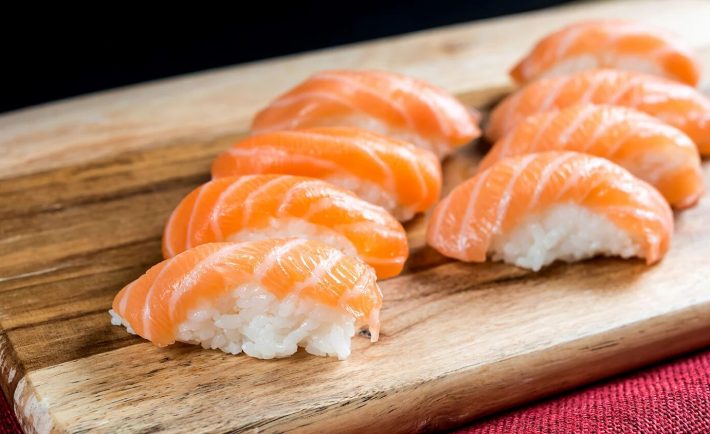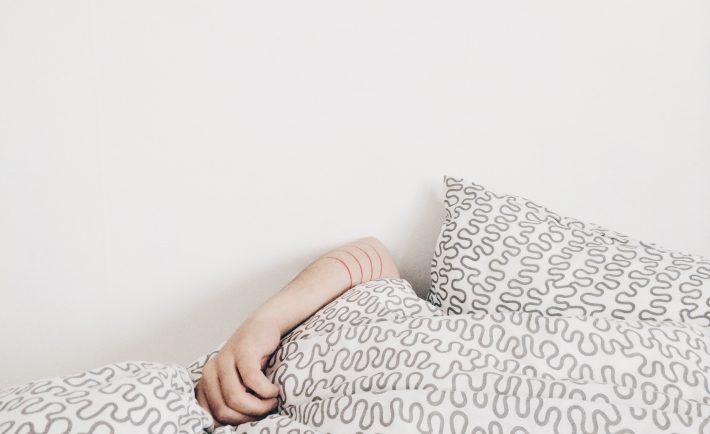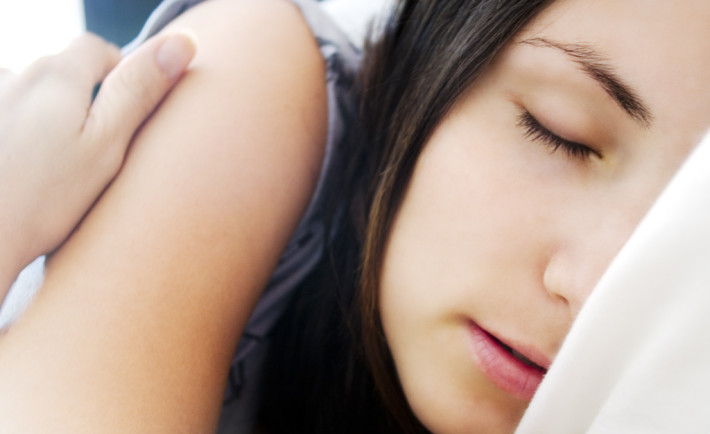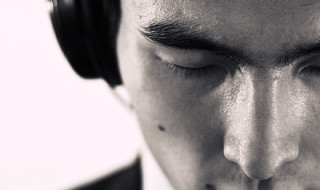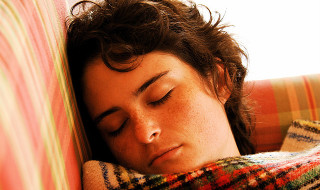We all know how important sleep is for our overall health and well-being. And we’re not just talking about getting some shuteye but a good rest that can help you function properly the next day.
Do not underestimate eight hours of proper sleep because it may reduce the risk of developing chronic illnesses, boost your brain health, and protect your immune system.
If you’re still reading this, thank you. Maybe you’ve tried various strategies to have a deep sleep or recently changed a new mattress to suit your sleeping style. Or perhaps you’ve attempted to tweak your diet, hoping to promote better sleeping properties.
Whatever it is, you might want to take these five foods for dinner if you’re planning to snooze better at night.
#1: Almonds
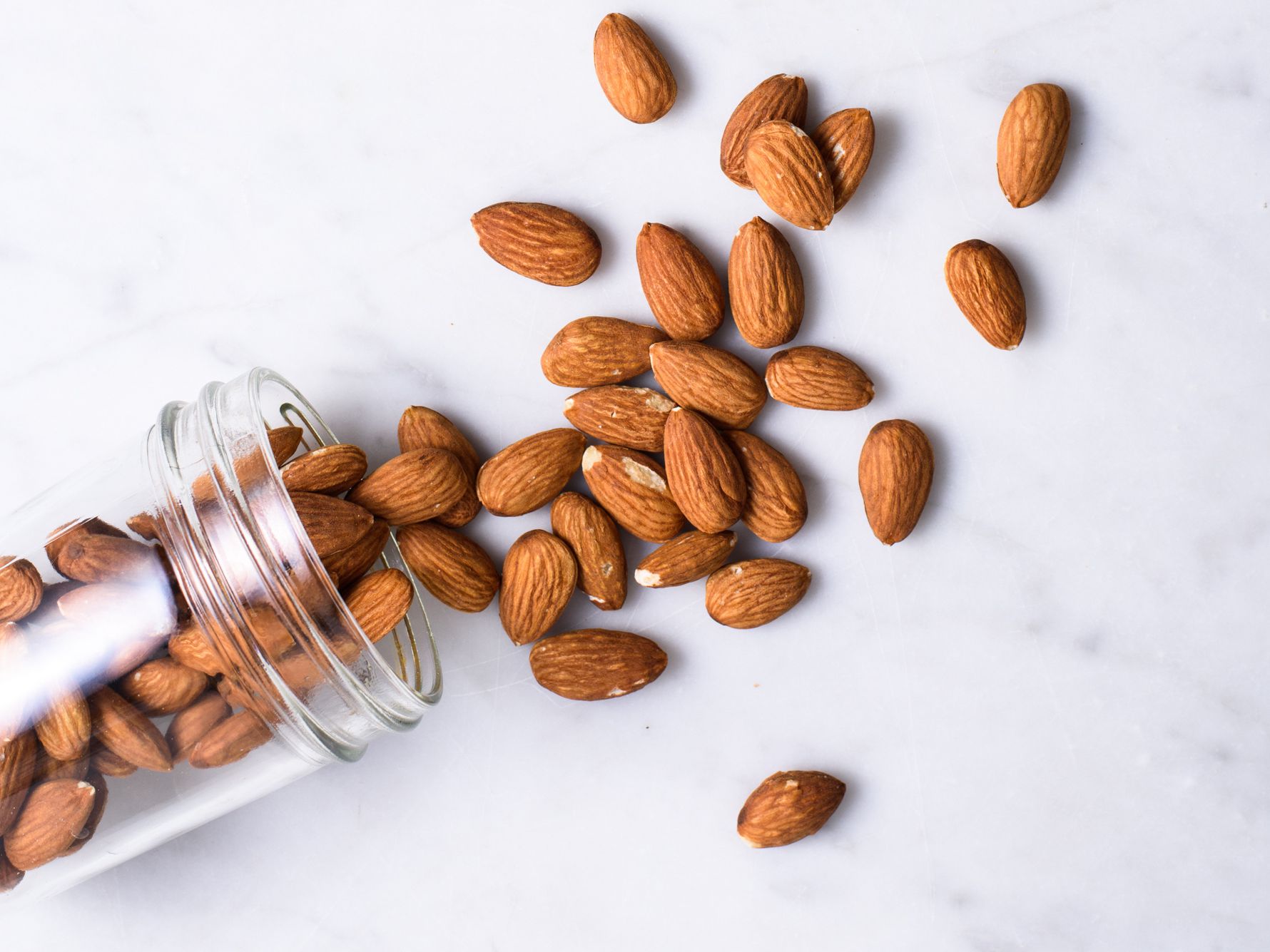
Image Credits: Verywell Fit
Alongside a variety of nuts, almonds are a source of the hormone, melatonin. Melatonin is important because it regulates your internal clock, sending the right signals for your body to rest at night.
Apart from it being a rich source of melatonin, it’s also full of the sleep-enhancing mineral magnesium. Just 28 grams of almonds can provide your body with 19% of your daily needs for magnesium. Those who have insomnia should consume adequate amounts of magnesium to reduce the levels of cortisol, a stress hormone.
In addition to that, almonds consist of many nutrients with great health benefits. The same 28 grams of dry roasted nuts contain several percentages of an adult’s daily needs for phosphorus, riboflavin, and manganese.
Thanks to its healthy monounsaturated fats, fibre, and antioxidants, eating almonds regularly can help lower risks of type 2 diabetes and heart diseases. It may also protect your cells from harmful inflammation.
#2: Turkey
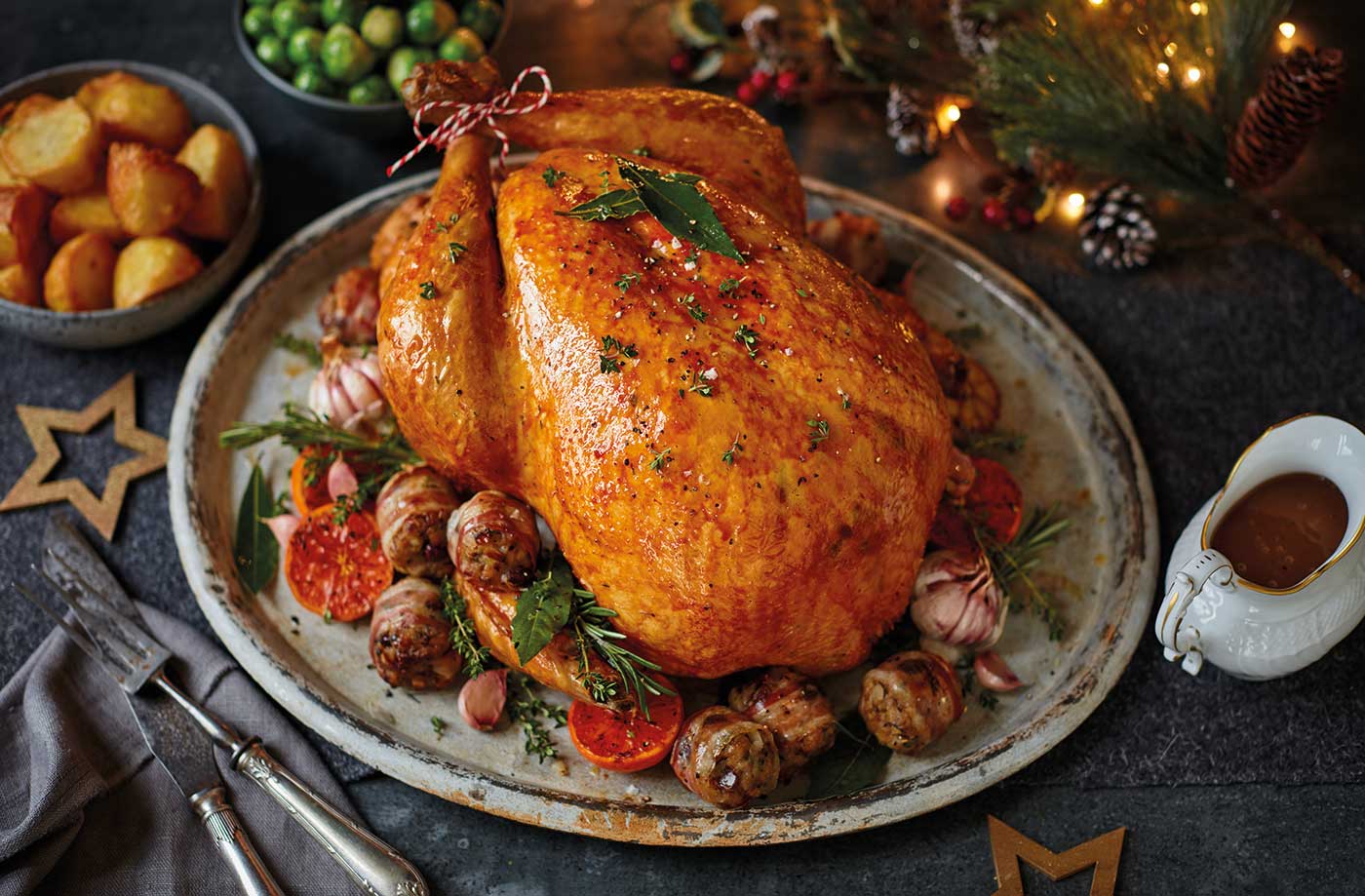
Image Credits: Tesco Real Food
Bet you weren’t expecting this to be on the list. With Christmas just around the corner, it seems like turkey is a perfect food to add to your dinner menu easily. Some people believe that consuming turkey can induce sleepiness or tiredness.
Remember how we talked about the importance of the hormone, melatonin in the first listing? To be exact, turkey contains the amino acid tryptophan, which increases the production of melatonin. It could be the very reason why people feel sleepy after eating it.
Another explanation could be due to the protein in turkey. Studies have shown that consuming moderate amounts of protein before bed can promote better-uninterrupted sleep with less waking up in the middle of the night.
#3: Kiwis
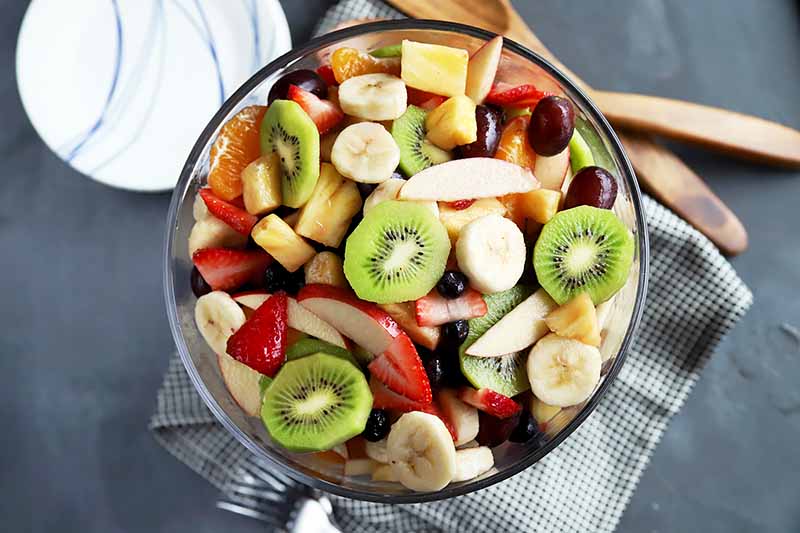
Image Credits: Foodal
One kiwi fruit contains only about 42 calories and makes an ideal sweet treat to have before bed without feeling much guilt. More importantly, it has great potential to improve sleep quality. Please do not just take our word for it but trust what research says.
Based on a month-long study, a group of 24 adults ate 2 kiwis an hour before hitting the sack each night. When the study concluded, the researchers found that the participants fell asleep more quickly than compared to before. They also had improved uninterrupted sleep and a total increase in sleep time.
This could be the works of several sleep-promoting effects of kiwis, including serotonin, a brain chemical that helps modulate sleep cycles. Anti-inflammatory antioxidants in kiwis like vitamin C and carotenoids also have a huge part to play.
#4: Fatty Fish

Image Credits: The Spruce Eats
We’re referring to fatty fish varieties such as salmon, tuna, trout, and mackerel because of their exceptional amounts of vitamin D. Just an 85-gram serving of sockeye salmon already contains 570 international units (IU) of vitamin D. And that’s not all.
Fatty fish contains high levels of omega-3 fatty acids like eicosapentaenoic acid (EPA) and docosahexaenoic acid (DHA). You may have read or heard before that omega-3 fatty acids can protect against heart diseases and boost brain health.
But more significantly, the combination of omega-3 fatty acids and vitamin D in fatty fish can improve your sleep quality. This is as a result of the increase in the production of serotonin, the same brain chemical we stated in our kiwi listing.
Based on the results of a study, men who ate 300 grams of Atlantic salmon 3 times a week for half a year fell asleep faster than men who ate other types of meat. Vitamin D is believed to have a considerable part to play in this phenomenon.
#5: White Rice
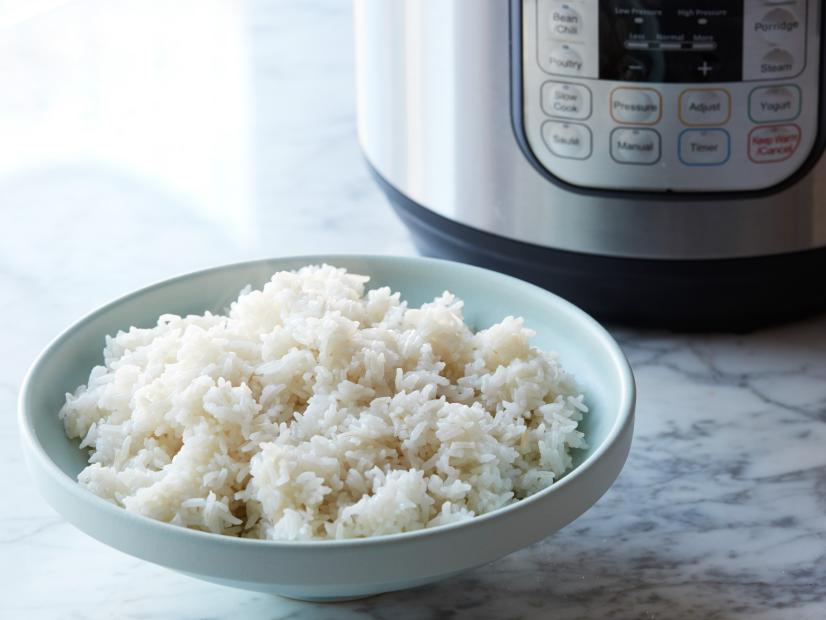
Image Credits: Food Network
We can foresee some heads turning left and right. Especially for people on a diet, having white rice for dinner may sound ridiculous. But hear us out first before you decide to say no.
First, you got to know that the main difference between white and brown rice is that white rice is a product after bran and germ are removed. This in turn results in lower fibre, nutrients, and antioxidants. Not to mention that it’s also carb-rich.
But also thanks to its lack of fibre and high carbs content, it has a pretty high glycemic index (GI). In short, GI is a measure of how quickly a particular food can increase your blood sugar. Foods with a high GI taken at least an hour before bedtime has shown to enhance sleep quality.
In fact, research on sleep habits of more than 1,800 people based on their intake of rice, bread, or noodles has revealed that higher rice intake was linked to better and longer sleep than consuming bread or noodles alone.
But as with all things, moderation is key. If you suspect that you’re having a severe sleep disorder or require a professional opinion, please visit a sleep disorder clinic as soon as your schedule frees up.

